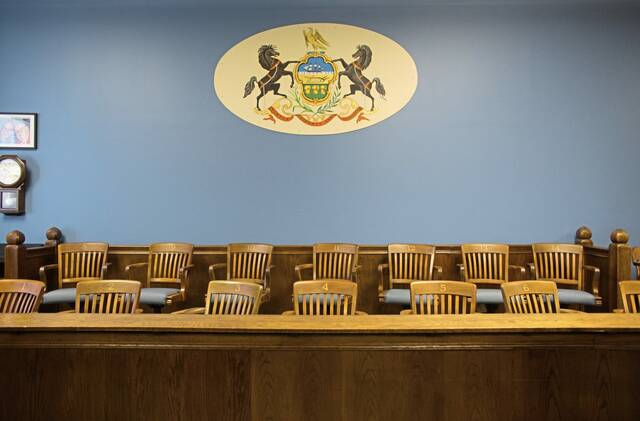Pennsylvania adopted “42 PaCSA § 4561(a).Compensation of and travel allowance for jurors” in 1959, when minimum wage was $1/hr. Eight hours of jury service, plus one hour of travel time, equaled $9/day paid by the local county. The Act provided neither a sunset provision nor a cost-of-living allowance. This -well-intentioned- 1959 law is no longer fiscally responsible in 2023.
Pennsylvania’s minimum wage is now $7.25/hr., or $58/day. $58 minus the $9 juror fee means a $47 daily loss for every juror. Employers receive zero compensation for the lost day. Both individual county taxpayers and the Administrative Office of Pennsylvania Courts suffer tens of thousands of dollars in this uncompensated mandate.
Our $9/day law is a clear nexus on a criminal defendant’s right to a fair trial. Low compensation means low-income residents cannot serve on juries. Wage earners in the lower strata of society cannot take a day off work in exchange for a $9 jury fee. Their employer won’t compensate them for the time off. They can’t afford child care. They even risk losing their jobs if they were to take time off to serve on a jury.
Pennsylvania juries tend to be predominantly white and male. They tend to be upper or upper-middle class with some advanced education. This too eliminates several segments of our society. The Racial Disparity Project found a 64.3% chance that no minority member would be even in our jury pools. Cases with no minority in the jury pool convict minority defendants 81% of the time. White defendants are convicted 66% of the time. When the jury pool includes at least one minority, the conviction rates were nearly identical: 71% for minority defendants, 73% for whites.
The Pennsylvania Supreme Court has been campaigning for jury compensation reform since 2003. A great deal of research has been done on the subject, especially within our commonwealth. This work should be given a fair hearing so we can determine what is the “best-of-practice.”
Firms who pay employees during jury service can already recover a 23% tax deduction from the IRS and our Department of Revenue. It is an employee-related expense. The employer is stuck with the remaining 77% of the juror’s wages.
An alternative has now appeared in which our Department of Revenue could absorb all juror compensation as a tax credit as a public service. The juror would be paid their daily wage, the employer would be fully compensated, local counties would be forgiven an unfunded mandate and the inadvertent racial disparity would be eliminated. Our Department of Revenue dismisses this loss of “opportunity income” with no substantial fiscal impact to Pennsylvania’s budget. Nineteen states have already adopted such policies without serious litigation. It is the best-of-practice.
The General Assembly is currently considering HB469 regarding juror compensation. Our House Judiciary Committee should conduct a full evidentiary hearing on this bill so the current scholarship may be thoughtfully examined.
If juror compensation were modified to reflect the “best-of-practice,” our law would be made fiscally sound, the inadvertent societal distortion can be eliminated and the defendant can come much closer to a fair trial. The juror would be paid in full, their employer would be fully compensated and our counties would be relieved from an unfunded mandate.
Roger L. Thomas is chair of the Governor’s Commission for the Analysis & Reform of Our Criminal System.








